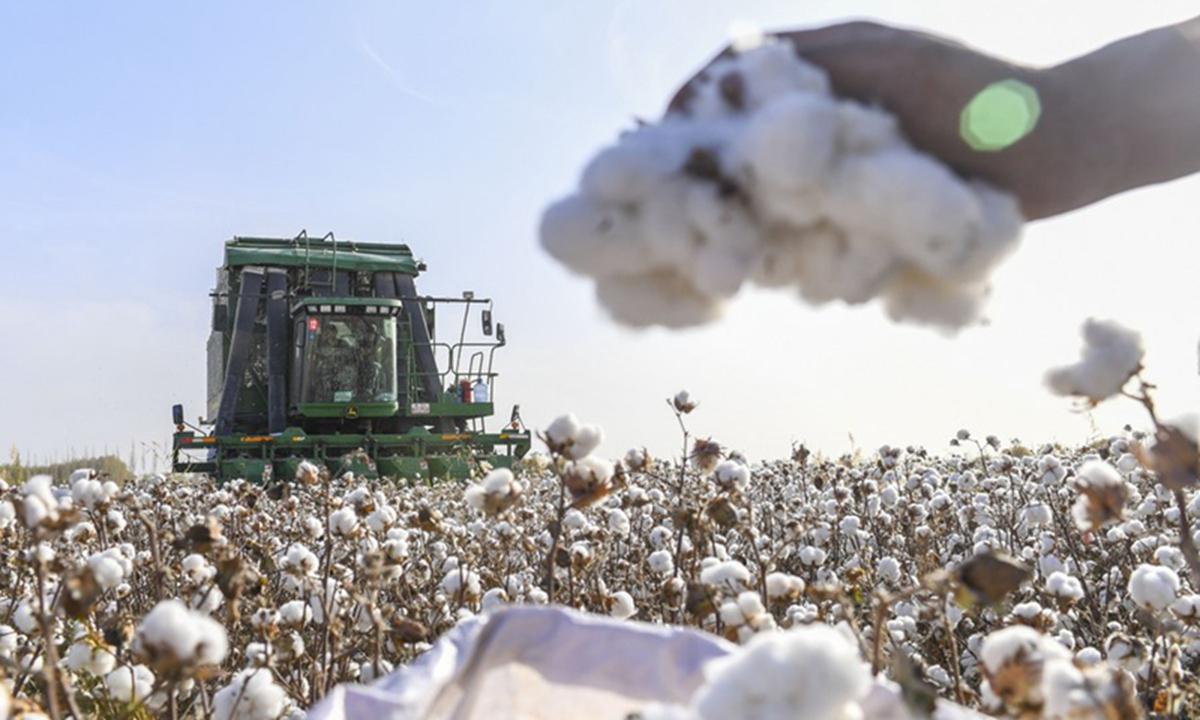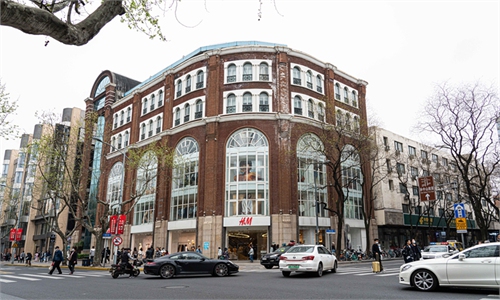
File photo: Xinhua
US supply chains seem to be set for a new round of chaos as US Customs imposed a ban on imports of products related to Northwest China's Xinjiang Uygur Autonomous Region from June 21, based on the so-called Uyghur Forced Labor Prevention Act (UFLPA).
According to a Wednesday Bloomberg report, citing a research note from Roth Capital Partners analysts, US Customs and Border Protection detained products from a major solar company and required documentation to detail whether the source of a raw material has links to Xinjiang.
The case, to a certain extent, highlights the risks and disruptions US importers will face in their supply chains with the UFLPA coming into effect. Since supply chain issues often contribute to big price increases, this is also why US trade and business groups already warned about further inflationary pressure as a result of the Xinjiang ban. Doug Barry, a senior director at the US-China Business Council, warned that the law could heap more pressure on pandemic-hit supply chains and stoke US inflation, according to media reports.
The UFLPA is based on utter lies concocted by the US to serve its notorious political conspiracy, with the aim of undermining China's status in the global supply chains by cracking down Xinjiang industries. The ban creates a "rebuttable presumption" that all goods from Xinjiang are "tainted by forced labor," and it requires corporations to prove with "clear and convincing evidence" that imports from the region are not made by forced labor.
The Xinjiang ban means that imports will face higher risks being detained by US Customs, which will not only create new supply chain issues but also driven up goods prices.
Moreover, after years of development, Xinjiang's products and raw materials have already been integrated into global industrial chains around the world. Xinjiang's huge market share in polysilicon, ketchup, and cotton production means that the US attempt to force companies to completely exclude Xinjiang's products and raw materials will backfire by bringing great unreasonable burden to importers, seriously threatening the security of the global industrial chains, and further weighing down the global trade and world economic growth.
The past several months saw the world economy suffer shocks of price increases at a pace not seen in decades. Among major economies, the US was hit the worst. US consumer inflation hit its highest rate in four decades at 8.6 percent in May. And because of the high inflation, senior US officials have frequently sent signals about lowering tariffs on Chinese goods in recent days.
At a time when the US clearly still needs China's help to solve its inflation problems and the world's two largest economies still have a lot of shared economic interests, it will only inflict more pains on the US economy if the Biden administration continues to pursue the "decoupling" strategy through the Xinjiang ban. If anything, with the Xinjiang ban, the disruption in the US supply chain will be much worse than in China. Moreover, Washington should not underestimate China's ability to fight back, which will likely make it harder for the US to curb inflation. Now US inflation is having greater-than-ever impact on the Biden administration's popularity, which doesn't bode well for the Democratic Party in the midterm elections.
Acting against the international trade rules with no regard for the interests of global industrial chain, the US is bound to hurt itself. Countries around the world also need to weigh the risk of following the US to suffer further supply chain chaos and consequent inflation.



